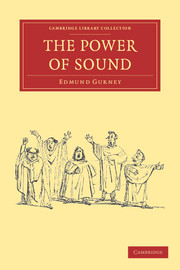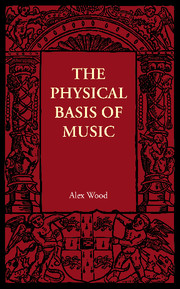On the Sensations of Tone as a Physiological Basis for the Theory of Music
Hermann von Helmholtz (1821–94) was a leading scientist who made important contributions to physiology, psychology, physics, philosophy and early neuroscience. Following his foundational work in ophthalmics during the 1850s, he became Professor of Physiology at Heidelberg and, in 1863, published On the Sensations of Tone. This investigation into the physical theory of music remains a central text for the study of physiological acoustics and aesthetics. In it, Helmholtz applies physics, anatomy and physiology. He explains how tones are built from a base tone with upper partial tones, and his later discussions on consonance and musical scales develop this theory and discuss how the ear perceives these tones. His work on consonance and dissonance was of particular interest to composers and musicologists well into the twentieth century. This English translation, published in 1875 from the third German edition, retains the original's straightforward language, making this classic work accessible to non-specialists.
Product details
October 2009Paperback
9781108001779
854 pages
216 × 140 × 48 mm
1.06kg
65 b/w illus.
Available
Table of Contents
- Notice by the translator
- Author's preface to the first German edition
- Author's preface to the third German edition
- Introduction
- Part I. On the Composition of Vibrations:
- 1. On the sensation of sound in general
- 2. On the composition of vibrations
- 3. Analysis of musical tones by sympathetic resonance
- 4. On the analysis of musical tones by the ear
- 5. On the differences in the quality of musical tones
- 6. On the apprehension of qualities of tone
- Part II. On the Interruptions of Harmony:
- 7. Combinational tones
- 8. On the beats of simple tones
- 9. Depth and deepest tones
- 10. Beats of the upper partial tones
- 11. Beats due to combinational tones
- 12. Chords
- Part III. The Relationship of Musical Tones:
- 13. General view of the different principles of musical style in the development of music
- 14. The tonality of homophonic music
- 15. The consonant chords of the tonal modes
- 16. The system of keys
- 17. Of discords
- 18. Laws of progression of parts
- 19. Esthetical relations
- Appendices.






